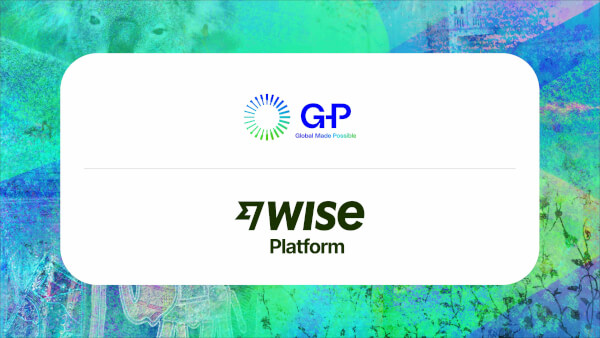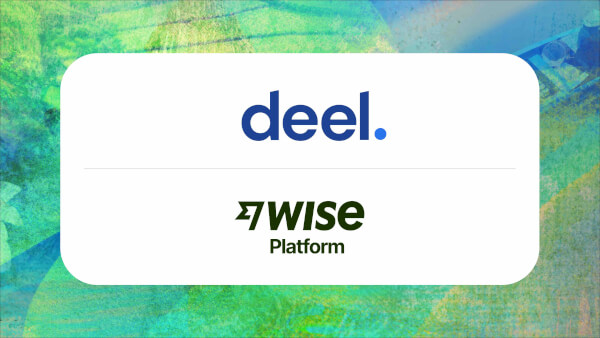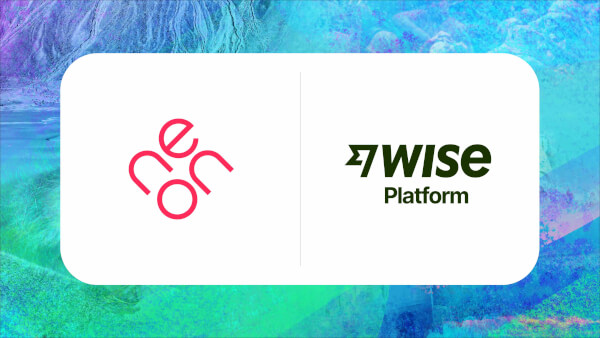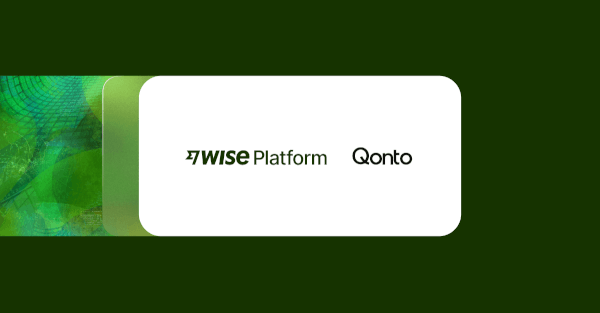Asia-Pacific players embrace partnership to win customer share in cross-border payments
Many banks are taking the first steps toward delivering exceptional customer experiences by using next-generation correspondent service providers.

Today, the average global straight-through processing rate is just 26% for cross-border payments.1 In a time when instant is the difference between success and failure, banks are grappling with how best to help bridge this significant cross-industry gap. Whilst budgets are tight and resources even tighter, how can financial institutions achieve a higher STP rate without a costly, resource-heavy technical overhaul? In this article, Triin Teppo, Wise Platform's Head of Payment Operations, answers this very question, examines the importance of process automation and how to achieve it.
In today's globalised economy, the ability to provide fast, frictionless international payments has become crucial for banks and their customers. Yet it's remarkable that in 2024, many banks still struggle to deliver this essential service. The inherent complexity of cross-border transactions often leads to inefficiencies, increased costs and a lack of transparency - all of which undermine customer satisfaction.
Faced with growing consumer demand for instant cross-border payments and mounting regulatory pressures, banks must dramatically improve their cross-border payment offerings to stay compliant and competitive.
Straight-through processing (STP), the electronic completion of transactions with minimal human intervention, has emerged as a vital solution to these challenges. By streamlining transactions and reducing operational risk, STP enables banks to maintain a competitive edge in the increasingly saturated cross-border payments market.
This article examines the critical importance of STP for banks seeking to preserve their customer base. It also discusses the key challenges banks face achieving straight-through automation, strategies for implementation and the advantages of industry-wide collaboration.

According to FXC Intelligence, global payments are expected to increase significantly by the end of the decade, from $190 trillion today to a staggering $290 trillion by 2030.2
This growth has heightened competition among banks, making the delivery of international payments and the overall customer experience crucial for financial institutions looking to capitalise on this significant opportunity.
As a solution, STP not only helps to reduce transaction times from days to seconds, but also cuts the costs associated with manual processing. Last year, the World Bank's Remittance Prices Worldwide database reported that the global average cost to send $200 between countries was approximately $12.50 - equivalent to 6.25 percent of the transfer amount.3
Global payments are expected to increase significantly by the end of the decade, from $190 trillion today to a staggering $290 trillion by 2030.
By automating processes, banks can significantly enhance their cross-border payment services, improving customer satisfaction and retention in a time when customer loyalties are notoriously fickle.
While banks' interest in streamlining payments processing is significantly influenced by customer demands and commercial opportunities, they must also navigate an increasingly stringent regulatory landscape.
Global regulations, such as the EU's Payment Services Directive Two (PSD2), are driving further investment in end-to-end automation. PSD2 aims to enhance payment security, promote innovation and improve customer protection - crucially, it requires banks to provide third-party providers access to customer accounts, paving the way for faster and more efficient cross-border payments.
Alongside PSD2, there are a number of other international initiatives that seek to streamline international transaction processes. These include the Financial Action Task Force guidelines and the G20's focus on fast and secure cross-border payments. Compliance with these initiatives is crucial for financial institutions and a key driver for the implementation of automation technologies.
Despite the clear benefits and drivers to adopt automation technologies, many banks continue to struggle with implementation.
The Bank for International Settlements (BIS) reports that 60% of cross-border business-to-business payments necessitate manual intervention, a process that can take 15 to 20 minutes.
Legacy banking systems often lack the automation capabilities needed to enable STP. Additionally, integrating new technologies frequently results in expensive system overhauls, delays to roll-out and strained resources.
Compliance requirements across different jurisdictions also pose a significant barrier for banks seeking to increase their STP rates. Banks must navigate a complex web of varying regulations and reporting requirements, often necessitating manual intervention to ensure compliance.
Additionally, inconsistent data formats and errors can severely impact the ability to process payments straight through. The Bank for International Settlements (BIS) reports that 60% of cross-border business-to-business payments necessitate manual intervention, a process that can take 15 to 20 minutes.4
With so many hurdles to implementation, how can banks improve their straight-through processing rates? To achieve a high level of STP for cross-border payments, banks may want to embrace a comprehensive strategy that integrates advanced technology, robust partnerships and regulatory compliance.
Fostering strategic alliances with local banks and payment processors across regions can help banks navigate regional regulations and cultural nuances, ensuring smoother customer experiences.
Adopting real-time payment standards, like ISO20022, enables better messaging and data exchange, improving visibility and traceability for all transactions. Investing in automation tools and artificial intelligence (AI) can also enhance fraud detection and compliance measures, boosting efficiency and trust.
Importantly, fostering strategic alliances with local banks and payment processors across regions can help banks navigate regional regulations and cultural nuances, ensuring smoother customer experiences.

To stay ahead of the automation curve, banks could also explore collaboration with established cross-border payments infrastructure providers. These partnerships can enhance banks’ STP capabilities and foster innovation. By tapping into the infrastructure expertise of these providers, traditional banks can upgrade their technology, automate processes and deliver a more seamless customer experience.
Wise Platform is a leading global payments infrastructure provider that collaborates with traditional banks to deliver seamless payment solutions for their customers.
By offering bespoke API and correspondent banking services, we enable banks to leverage our scalable infrastructure and access a network with five direct connections to payment systems and over 90 banking partners worldwide.
Our partners also benefit from scalable compliance, supported by local servicing and compliance teams. Powered by over 150 machine learning algorithms, we run 7 million checks per day to identify fraud, sanctions, and AML risks - that's 80 checks per second, for every single payment.
Additionally, our real-time treasury management offers rates in over 40 currencies, 24/7, 365 days a year. Operational automation has been a key factor in achieving our 99% straight-through processing rate.*
Our highly scalable solutions and operations are customised to accommodate the unique needs of each banking partner. Take bulk settlement, for instance. Here, we offer products that give ownership of settlements over to the partner - meaning bank partners are able to own their own funding structure, by decreasing issues that might come with receiving money individually from customers.
It’s this kind of collaborative approach, scalable infrastructure and customised services that empower traditional banks to deliver seamless, innovative payment experiences for their customers worldwide.
The global payments landscape is rapidly transforming to meet growing customer demands for fast, efficient and cost-effective international payment services. Banks can no longer afford to offer cross-border payment options that take a week or more to reach the beneficiary.
To stay competitive, banks should align their international service delivery with the speed and efficiency of their domestic offerings.
As banks grapple with legacy systems and stringent regulations, the need to innovate has never been greater. In this climate, the critical importance of automation and streamlined processing cannot be overstated.
Wise Platform is proud to be working with banks and organisations worldwide to enable seamless, market-leading STP experiences that empower customers.
About Triin Teppo
As the Head of Payment Operations, at Wise Platform, Triin has assembled a world-class division of payment experts who support the company's expanding global partnerships. With a wealth of experience navigating the intricate world of cross-border payments, Triin and her team make sure Wise Platform’s global operations are running smoothly, delivering the highest quality possible.
Sources
*Please see terms of use and product availability for your region or visit Wise fees and pricing for the most up to date pricing and fee information.
This publication is provided for general information purposes and does not constitute legal, tax or other professional advice from Wise Payments Limited or its subsidiaries and its affiliates, and it is not intended as a substitute for obtaining advice from a financial advisor or any other professional.
We make no representations, warranties or guarantees, whether expressed or implied, that the content in the publication is accurate, complete or up to date.

Many banks are taking the first steps toward delivering exceptional customer experiences by using next-generation correspondent service providers.

Problem Getting paid on time and the right amount has long been the biggest downside of flexible work for freelancers or contractors. Often it is the...

Deel is a leading global HR and payroll company enabling more than 15,000 companies, spanning from SMBs to large enterprises, to scale their teams around the...

Problem Sending money abroad can still be complex, expensive, and slow. For too long, Swiss customers have had few choices about how to send their money...

Discover how leading SME financial service provider Qonto partnered with Wise Platform to double the adoption of its international transfers feature.

Gusto on the SME market and how payments are economically empowering businesses - and people - around the globe.